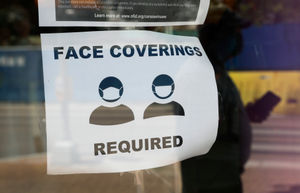Shropshire Star comment: Mixed messages not unexpected
The results of the Star's survey on returning to work in the wake of the coronavirus pandemic make for very interesting reading.

While two thirds of those who responded believe it was time for people to get back into the workplace, almost half said they did not believe it was yet safe to do so.
In many respects this is not surprising, particularly considering the current prevalence of local outbreaks up and down the country.
The memories of the destruction caused by Covid-19 are still fresh, and many people are quite rightly concerned about the possibility of a second wave hitting at the same time as the winter flu season.
While much of the recent talk has centred around the damage this would do to our economy, it should be remembered that public health is an absolute priority.
Tellingly, almost three quarters of respondents in our survey want to see the option of home working kept open, and that is certainly something that employers will be looking at over the coming weeks and months.
In a perfect world, everyone would be back in their workplace.
Although there have been some benefits to home working, it is hardly something which should be considered a long term solution.
To build morale and team spirit, and to encourage and develop innovation, businesses need their staff to be on site.
Returning to the office is also crucial for the mental wellbeing of workers.
In Whitehall there are fears that a "stay away culture" is starting to develop among staff.
This is understandable, particularly when you consider the impact that empty office blocks are having on our town and city centres.
The truth is that our high streets, which were under pressure long before Covid-19 hit, cannot afford to suffer another blow.
The way out of all of this is for a vaccine to be developed as quickly as possible, but in the meantime testing is crucial.
Health Secretary Matt Hancock says the newly introduced 20-minute tests will be a huge step forward.
Yet the fact remains that as things stand, the system is struggling to cope with demand.





